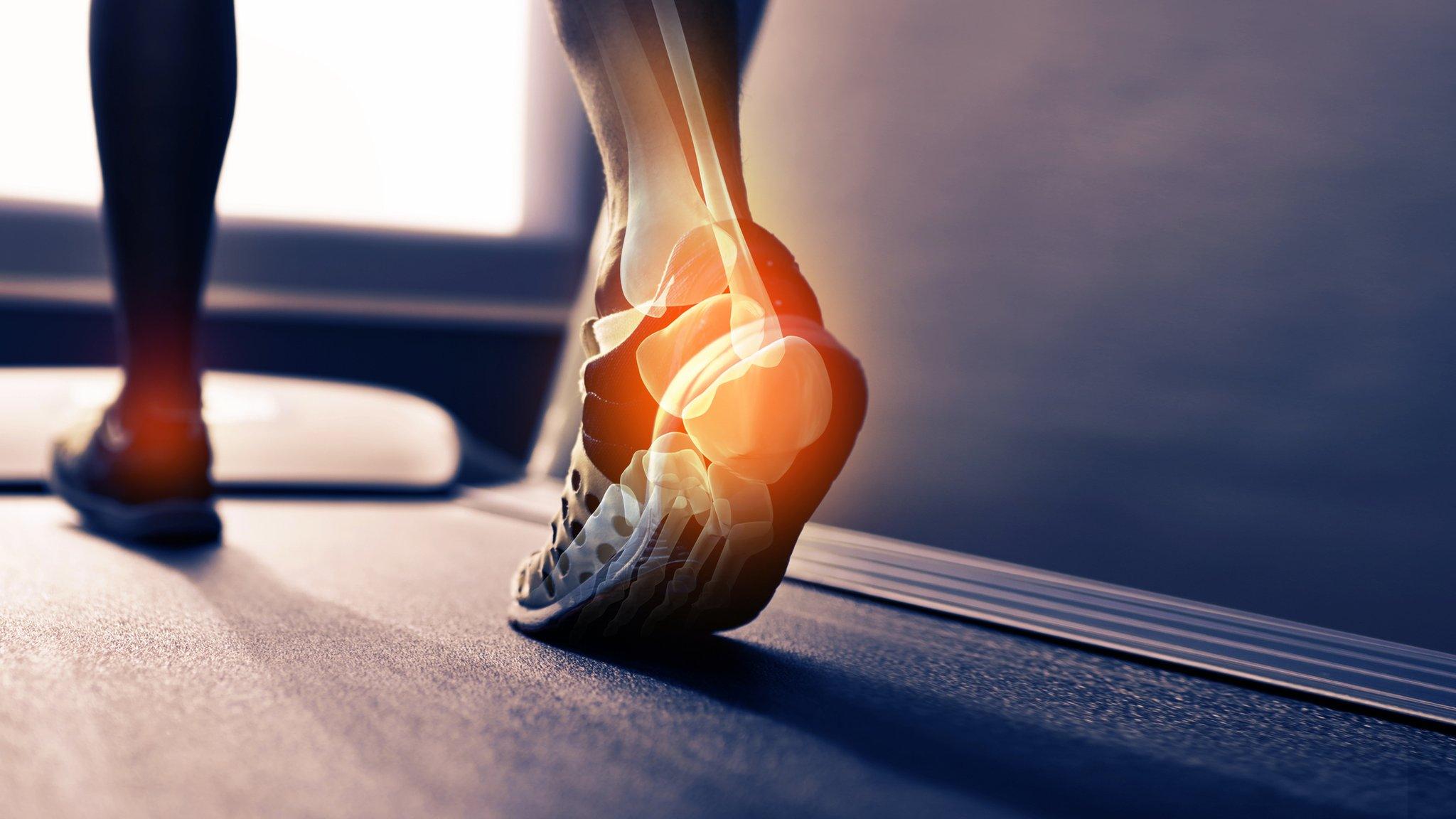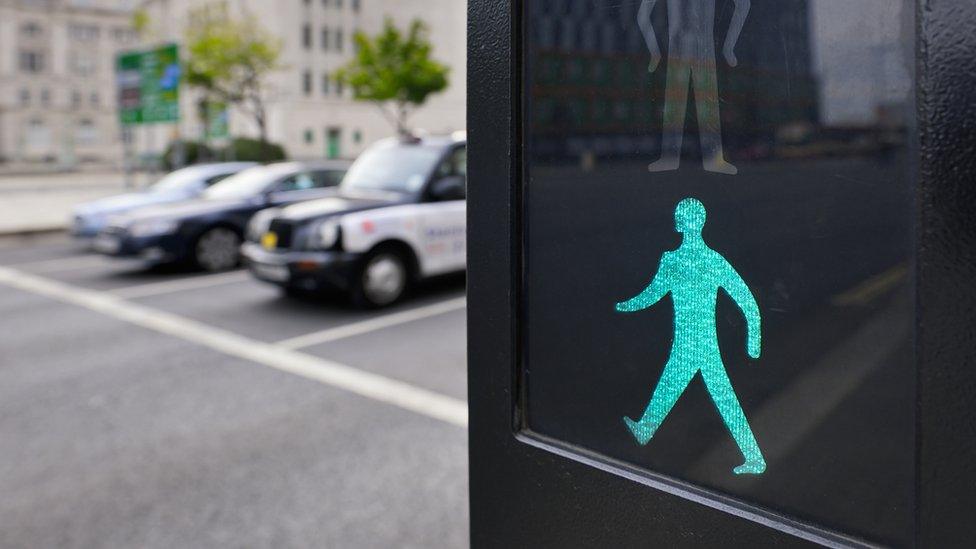Green man crossings 'too fast' for people with arthritis
- Published
Is the green man too fast to allow people to cross?
People with arthritis are unable to cross roads quickly enough because the green man light on pedestrian crossings is too fast, according to researchers.
The problem has been highlighted during preparations for a £1.8m study on the condition and mobility issues led by Glasgow Caledonian University.
Prof Martijn Steultjens said pedestrian crossings were set with an assumed walking speed of 1.2 metres per second.
He said a study found 85% of women aged over 65 were unable to walk this fast.
The lead researcher on the Gait Rehabilitation in Early Arthritis Trial was due to meet the Scottish Parliament's cross party group on chronic pain to update MSPs on the project.

Professor Martijn Steultjens believes pedestrian crossing timings should be increased
Ahead of the meeting, he said: "People with arthritis can't make the green man, they just don't want to go into town anymore.
"We know from speaking to patients that the issue makes them feel embarrassed and unsafe and is leading to social isolation for many.
"I do not feel this story about the many people suffering because of the green man is well enough known.
"I think it is time that city centres consider whether they are catering for an ageing population and people who experience difficulties in walking."
The five-year project will involve a feasibility study with patients from NHS regions in Scotland and England, followed by a large trial.
Glasgow Caledonian University is working in partnership with Keele University, King's College London, Salford University and the University of Glasgow.
- Published26 June 2017

- Published22 August 2017
